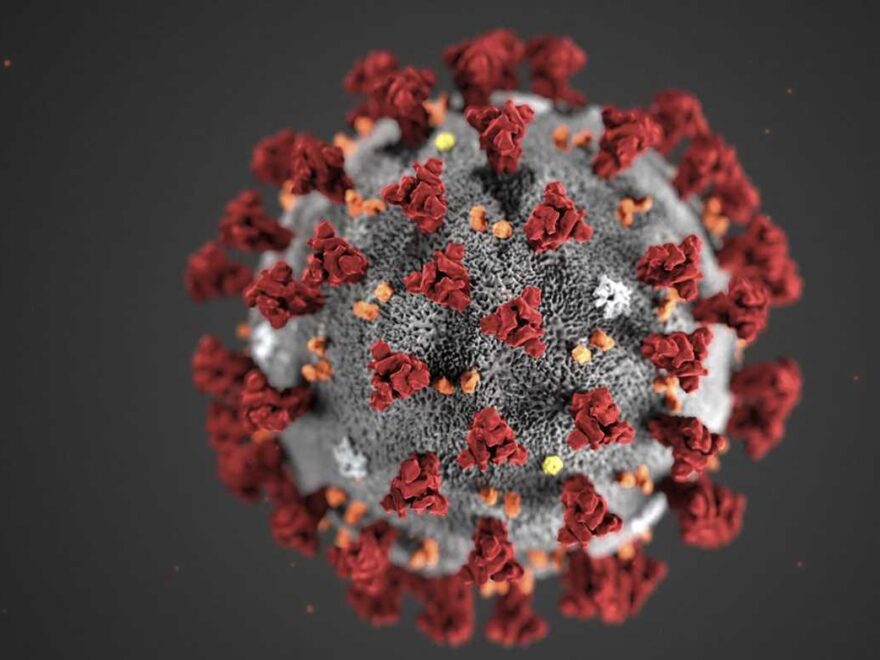COVID is leaving a trail of patients suffering debilitating symptoms months after initial infection.
The condition, dubbed 'long Covid', commonly causes chronic fatigue and physical pain.
Over two million adults in England may be suffering from the illness, studies have claimed.
The most commonly identified signs have included extreme tiredness, loss of smell, muscle aches and shortness of breath.
But now, a new symptom has been revealed by scientists.
It comes as another new Covid variant called Eris is sweeping the UK.
Read more on long Covid
I spend 90% of my time in bed with Long Covid – I feel forgotten by the Gov
Scientists narrow down long Covid symptoms to just 7 – do you know the signs?
WHO officials say there is no suggestion the sub-variant is causing more severe disease – but it is more contagious.
The research, published in The Lancet medical journal, detailed a new symptom of the condition after a 33-year-old man was referred to the specialists’ clinic.
The patient had a six-month history of what the authors describe as a “rapid purple discolouration” on his legs.
When standing, his legs would feel progressively heavier "tingly, itchy and dusky” in colour.
Most read in Health
Weight loss jabs set to be prescribed on new NHS apps – without need to see a GP
How dirty air is harming your body – and 10 tips to protect yourself
I fell for 10k-steps-a-day gimmick – I've walked in my PJs I was so obsessed
Dr Zoe Williams answers your health concerns – from A&E to weight loss
He would also develop a rash on his feet that would only disappear if he sat down.
The condition, known as acrocyanosis, typically occurs in the hands and feet but can also emerge across the nose and ears.
It happens when there's not enough oxygen in your blood in that part of the body, or you have poor blood circulation.
The condition is not harmful, the NHS says.
Co-author, Dr Manoj Sivan, of the University of Leeds said this was a particularly "striking" case of acrocyanosis.
“Patients experiencing this may not be aware that it can be a symptom of long Covid and dysautonomia, and may feel concerned about what they are seeing," he told Metro.
He said clinicians may also not be aware of the link between acrocyanosis and long Covid.
“We need to ensure that there is more awareness of dysautonomia [malfunctioning of the nervous system] in long Covid so that clinicians have the tools they need to manage patients appropriately." he explained.
The NHS offers long-Covid services for those whom the condition is negatively impacting their life.
Sufferers may be referred to a specialist service, rehabilitation service or a service that specialises in specific symptoms have.
Read More on The Sun
Tributes to girl, 10, found dead at home as international hunt continues
X Factor star looks unrecognisable as Fearne Cotton marks his birthday
Latest data shows Eris it is the second most prevalent strain in the UK, accounting for 14.6 per cent of cases, according to the UK Health Security Agency.
Overall Covid infections are thought to have jumped from 606,656 on July 4 to 785,980 on July 27, according to the Zoe Health Study.
List of common long Covid symptoms
Most people with Covid feel better within a few days or weeks of their first symptoms.
But if you don't make a full recovery within 12 weeks you could be suffering from long Covid.
The most common symptoms of long Covid are:
- extreme tiredness (fatigue)
- feeling short of breath
- loss of smell
- muscle aches
However, there are lots of symptoms you can have after a COVID-19 infection, including:
- problems with your memory and concentration ("brain fog")
- chest pain or tightness
- difficulty sleeping (insomnia)
- heart palpitations
- dizziness
- pins and needles
- joint pain
- depression and anxiety
- tinnitus, earaches
- feeling sick, diarrhoea, stomach aches, loss of appetite
- a high temperature, cough, headaches, sore throat, changes to sense of smell or taste
- rashes
Source: NHS
Source: Read Full Article









